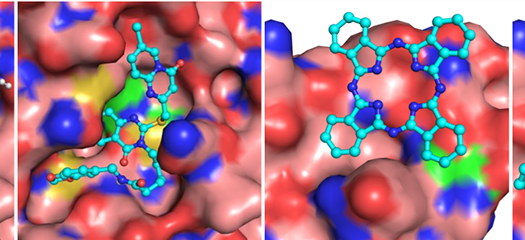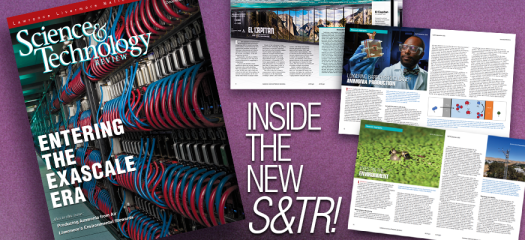Browse this site's news, projects, and people highlights via any of the topics in the dropdown list or below each content description.

Automated Testing System
LLNL’s Python 3–based ATS tool provides scientific code teams with automated regression testing across HPC architectures.

RADIUSS
The RADIUSS project aims to lower cost and improve agility by encouraging adoption of our core open-source software products for use in institutional applications.

COVID-19 R&D
From molecular screening, a software platform, and an online data to the computing systems that power these projects.

Greg Becker
Computer scientist Greg Becker contributes to HPC research and development projects for LLNL’s Livermore Computing division.

Elsa Gonsiorowski
“If applications don’t read and write files in an efficient manner,” system software developer Elsa Gonsiorowski warns, “entire systems can crash.”

Edgar Leon
Working on world-class supercomputers at a U.S. national laboratory was not what Edgar Leon, a native of Mexico, envisioned when he began preparing for university.

Enhancing the software ecosystem with LLMs
Over the next three years, CASC researchers and collaborators will integrate LLMs into HPC software to boost performance and sustainability.

S&TR cover story: Introducing El Capitan
The latest issue of LLNL's magazine explains how the world’s most powerful supercomputer helps scientists safeguard the U.S. nuclear stockpile.

High-performance computing at a crossroads
LLNL's Bruce Hendrickson joins other HPC luminaries in this op-ed about the future of the field.
